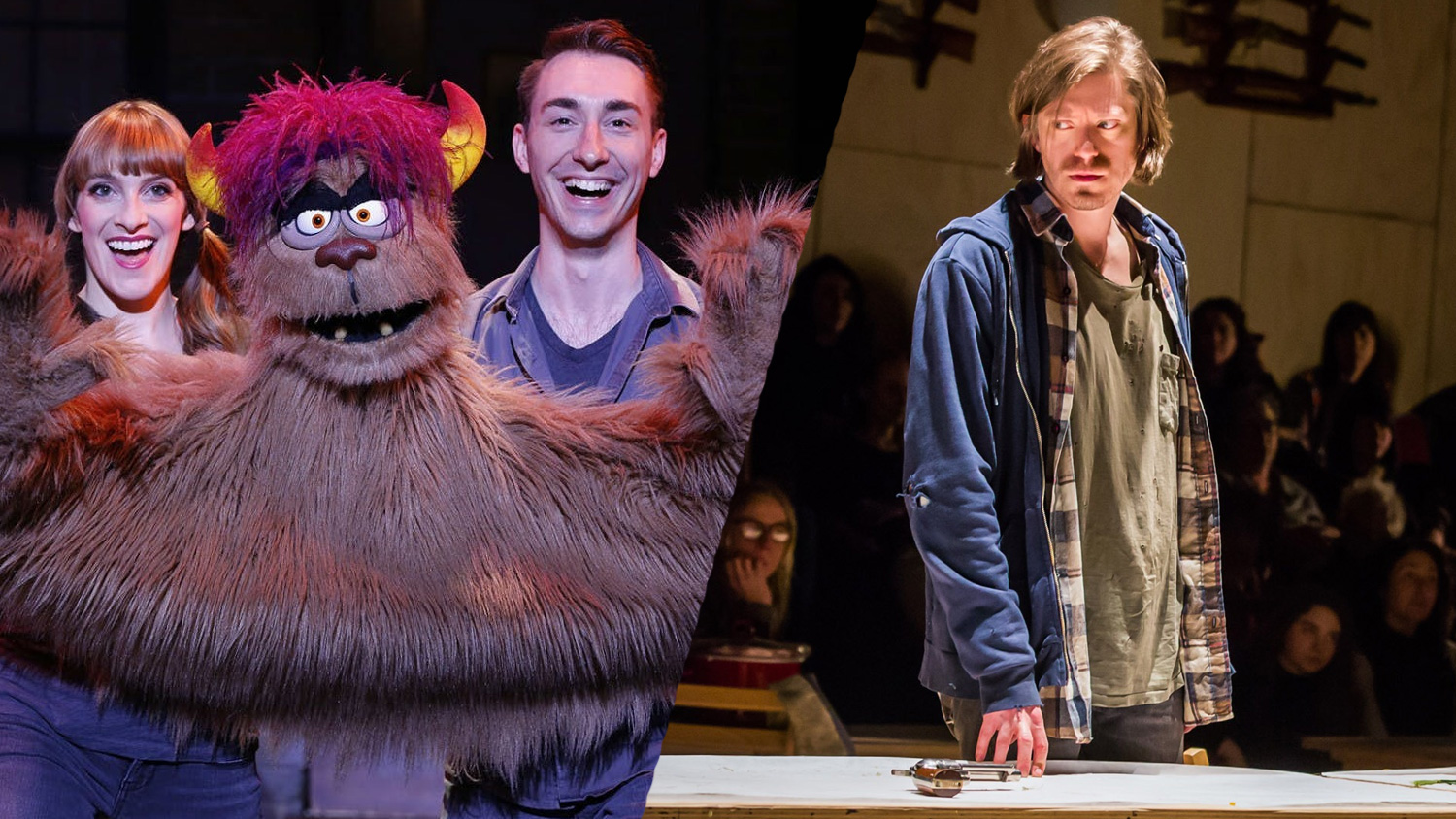“The internet is for porn / The internet is for porn / Why you think the net was born? / Porn, porn, porn!”
Trekkie Monster, “The Internet Is for Porn”
“I ain’t gonna dream about her arms no more! / I ain’t gonna leave her alone! / Goin’ outside / Git myself a bride / Git me a womern to call / My own”
Jud Fry, “Lonely Room”
A quick addendum to my post on “Oklahoma!”: Jud Fry of “Oklahoma!” and Trekkie Monster of “Avenue Q” are the same. They’re spawned by the same culture and prompt the same societal questions. My case, in five parts:
Both know women primarily from pornography rather than personal interaction
This is obvious. Jud lives alone in a smokehouse with postcards of naked women all over the walls. Trekkie Monster lives alone in a lousy apartment and spends “all night” – his words – on the internet looking at porn.
Both are eager to, uh, invest in education
Trekkie Monster fronts $10 million of funding for the Monsterssori School. Jud Fry bids two years’ of savings during the auction at the box social, which benefits the schoolhouse. Wake up, sheeple!
Both are socially isolated
When Princeton moves to Avenue Q, Christmas Eve warns him, “Stay away from [Trekkie]; he’s a pervert.” When Jud Fry dies, no one in his town mourns him. The only difference is in how the two process their feelings of isolation and sexual frustration. Ultimately, Trekkie is the more palatable of the two because he doesn’t seem directly dangerous to women. He’s literally more cuddly.
Wait, I’m actually going somewhere with this
“Oklahoma!” was written 60 years before “Avenue Q” and takes place nearly 100 years earlier. Yet both Jud and Trekkie are products of a culture that commodifies women and pathologizes the sexual frustration of men. When we meet Trekkie Monster in 2003, he is sympathetic and weirdly tragic, having been abandoned by society. If you think about his character for too long (say, 16 years), you start to ask questions – questions we should also ask about Jud!
- What do we do with men who don’t know how to treat women as people?
- What does it say about our culture that we have so many men who don’t know how to treat women as people, and that this character is a recognizable archetype we know from our personal experiences?
- Are these men anomalous, or are they just more pointed manifestations of a broader problem? (Trekkie is quick to point out, accurately, that everyone watches porn on the internet, although few as frequently as he.)
- How can we make these men feel included in our society without validating their views?
- Do these men have redemptive value? If yes, how do we unlock it? If not, what do we do with them?
Each play proposes a different answer
“Oklahoma!” can’t happily resolve until Jud is dead. It’s not enough for him to be exiled from town; he must be put down, like a rabid dog (albeit, sometimes, accidentally by his own hand).
“Avenue Q” gives Trekkie a sense of closure via the Monsterssori school. Trekkie hopes that by investing in the school, he can help other young monsters avoid the trauma of the bullying he experienced in his own childhood. Certainly this is a less cynical ending than Jud’s, but in keeping with the overall tone of “Avenue Q,” it veers to the opposite extreme, giving us exaggerated sunniness and an abrupt, tidy twist.
It’s been 76 years and 16 years, respectively, since “Oklahoma!” and “Avenue Q” opened on Broadway. If anyone else has any ideas about what to do with men like Trekkie and Jud – and with the culture that breeds them – we’re still in need of answers.
“Jud was the most misunderstood man in this here territory. People used to think he was a mean ugly feller and they called him a dirty skunk and an ornery pig stealer.”
Curly McLain, “Pore Jud Is Daid”
“When me little / Going to school / Other children / Think me not cool / Poking and pulling / At me fur / Now me have therapist / And work on this with her”
Trekkie Monster, “School for Monsters”
An important final note
I wrote this post exclusively for my friends Abby and Margot, who deserve all the credit and absolutely all the blame.
Abby: my only issue with Trekkie is it might be difficult to pull off Lonely Room while doing the Trekkie voice
me: BUT I’D SURE LIKE TO SEE SOMEONE TRY
Featured image: Lexy Fridell and Jason Jacoby as Trekkie Monster by Carol Rosegg and Patrick Vaill as Jud Fry by Little Fang Photo.

